Concealed Carry Permit: How Long Does a CCW Permit Last, Concealed Handgun and Firearm Permits Guide
As an authoritative guide, it's our duty to provide valuable insights on important topics such as 'Concealed Carry Permits.' This article is designed to offer comprehensive information regarding a CCW permit's duration, the requirements to possess a concealed handgun, as well as a general guide on obtaining firearm permits. We aim to educate readers on the myriad elements encompassed within this authorization process, ultimately providing a significant resource for anyone seeking to understand the intricacies of concealed carry permits. Stay tuned to equip yourself with critical knowledge aimed at fostering responsible gun ownership.
Table of Contents
- Concealed Carry: Understanding the Concealed Handgun Permit Process
- Essential Information on the Concealed Carry Test: What Questions to Expect?
- Concealed Carry vs Open Carry: Analysing Gun Laws and Conditions
- FAQ
- Q: What is the application process for a concealed carry permit?
- Q: How long do concealed carry permits last?
- Q: Can a concealed carry permit be used in all states?
- Q: What topics are covered in the concealed carry test?
- Q: What factors should influence the decision between concealed carry and open carry?

Concealed Carry: Understanding the Concealed Handgun Permit Process
Obtaining a concealed carry permit involves understanding the detailed stages of the application process enacted by each state. While the concealed firearm permit is widely available in the United States, the requirements and duration of these permits can differ significantly from one state to another. A concealed handgun permit is a specific kind of firearms permit that allows the holder the right to carry concealed firearms such as pistols or revolvers.
Applicants interested in obtaining concealed carry permits must take into consideration that this permit is restricted by certain requirements imposed by each state. In most states, residents must be at least 21 years of age to apply for such permits- though some states may also permit residents to apply if they are 18 years old and have completed certain safety training programs.
Another crucial part of the concealed carry permit application is to demonstrate that you have a genuine reason to carry a concealed firearm. The concealed carry permit is not issued to everyone who applies- the state has discretion to decide who can have a concealed handgun.
The duration of the concealed carry permits is also not standardized. In most states, the permits typically last for five years, after which they need to be renewed. However, the renewal process for the concealed firearms permit may require the same level of scrutiny and background checks as applied during the initial issuance of the permit.
If the permit holder moves out of the state where the permit was originally issued, it is essential to find out whether the new state recognizes the concealed pistol permit. Often, the residents of one state may have their handgun permit recognized in another, but this is not always the case. Consequently, people who carry concealed weapons need to be fully aware of the different regulations and restrictions in all states.
The concealed carry permit, therefore, provides a means for law-abiding applicants to protect themselves and their property. To be a responsible holder of such a permit, one should be fully versed in their state's permit application process, renewal process, age restrictions, and safety requirements that come with the license.
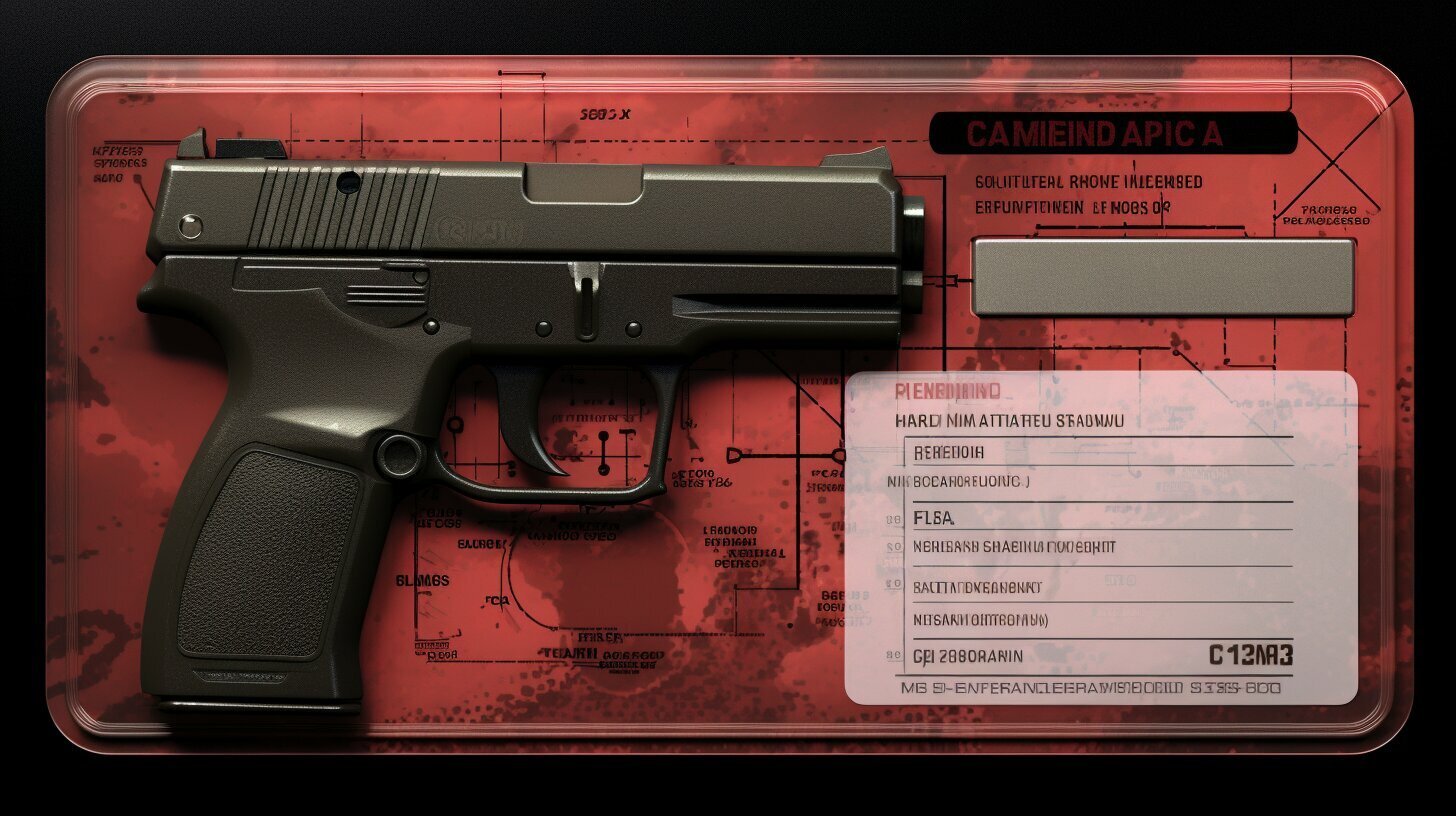
Essential Information on the Concealed Carry Test: What Questions to Expect?
When pursuing a concealed carry permit, individuals must navigate a multi-faceted process. An essential part of this process is mastering the concealed carry test. Commonly, a concealed carry test encompasses a range of questions designed specifically to evaluate your understanding of pertinent laws, safety protocols, and responsible usage of firearms. Let's delve deeper into the specifics of what to expect during this exam.
Primarily, your knowledge about the legalities associated with concealed carry permits will be challenged. For instance, questions may cover relevant local, state, and federal laws that dictate the use of concealed firearms. Understanding these laws, which may vary across states, is crucial to pass the test and secure your permit. Whether it’s about the protocols of carrying a concealed handgun in specific premises, or about situations where the use of force is legally justified, these questions test your comprehension of the laws that regulate concealed carry permits.
Also, the concealed carry test evaluates your understanding of safety fundamentals when handling firearms. The examiner may solicit responses related to general rules of firearm safety, correct handling and storage methods for a concealed handgun, and necessary action steps during an emergency situation related to firearms. Additionally, you might be questioned on the best practices of keeping your firearm concealed, securing firearms from unauthorized access, and actions to mitigate incidents of accidental discharge.
The technical aspects of handling firearms may also be included in the concealed carry test. This often involves questions related to basic firearm functioning, ammunition types, reloading procedures, proper maintenance, and problem-solving measures for a malfunctioning firearm. Mastery of these can boost your confidence and help ensure the safety of yourself and those around you when handling a concealed firearm.
Each permit application often requires applicants to submit their fingerprints and undergo a background check. Related questions may focus on the implications of a denied permit, the rationale for background checks, exceptions from these requisites, and the process to appeal against a denied permit.
In conclusion, while each permit issuer might have varying testing modalities and permit application procedures, potential questions usually fall within these broad categories. It is advisable to revisit and study this information periodically even after acquiring the permit, to maintain updated knowledge and continue emphasizing safety.
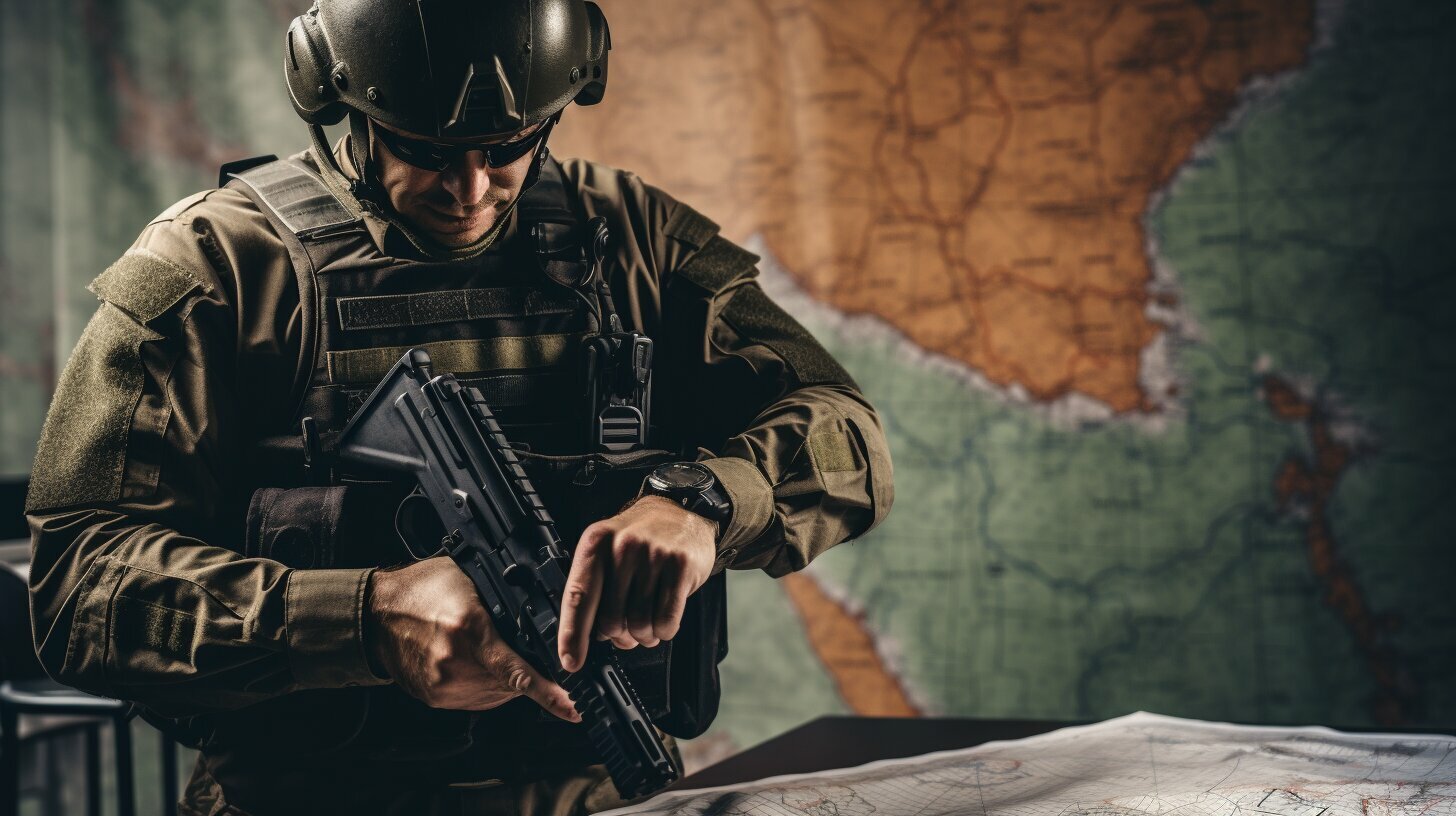
Concealed Carry vs Open Carry: Analysing Gun Laws and Conditions
The concealed carry permit and open carry permits present two unique pathways towards firearm possession and use in the United States. When it comes to the concealed carry permits, many find the idea of 'concealed' more appealing due to the element of surprise it offers. A concealed handgun or other firearms are not visible to the public eye, thus, the term 'concealed'. This fact alone can often act as a deterrent to potential criminals. Consequently, those who are in possession of a concealed firearm permit adhere to a safety protocol that includes understanding and following the stipulated gun laws and carry laws.
On the other hand, the open carry law allows firearms to be visible to the people around. While the visibility may deter potential threats, it can also attract unwanted attention and escalate situations. Regardless, the individuals who can legally possess a firearm under open carry conditions are expected to follow the gun laws stringently.
Many frequently ask, 'Between concealed carry and open carry, which is the safer bear arms option under the law?'. This question is complex. Its answer lies not only in adherence to law and safety practices but also in the particular 'states' and 'divisions' that one resides in. It's important to note that the concealed carry permits, which grant the right to carry a concealed handgun, and other permit types are subject to the laws of individual states.
Some common qualifications for obtaining a CCW permit include:
- Completing a background check: Applicants will typically be subject to a thorough background check, which may include a criminal history check, mental health records review, and character references.
- Completing a firearms safety or training course: Many states require applicants to demonstrate competency with a firearm by completing a firearms safety or training course. This course helps ensure that individuals who obtain a CCW permit have the knowledge and skills necessary to handle firearms safely.
- Meeting state-specific requirements: Each state may have additional requirements that applicants must meet. These requirements may include residency, fingerprinting, proof of good moral character, and payment of application fees.
Interpreting these laws—be it the concealed carry permit laws or open carry laws—and aligning one's actions with them is critical. They are the foundation that upholds the safe and lawful management of firearms in society. Misinterpretation or ignorance of the law can lead to perilous circumstances. Hence, whether it's about obtaining a concealed carry permit or an open carry permit, one needs to have explicit knowledge about the relevant gun laws, carry laws, state and division regulations. Similarly, a thorough understanding of the conditions under which the concealment of firearms is permitted is mandatory for those opting for concealed firearm permits.
When deciding between concealed and open carry, your safety and the safety of those around you should be a priority. Therefore, choose the gun carrying method that most aligns with your lifestyle, safety needs, and the unique conditions of your state or division. Remember, holding a handgun permit—whether for a concealed handgun or for open carry—translates to a significant responsibility. It's not just about choosing between different carry permits, but comprehending and maintaining the letter and spirit of firearm permit laws."
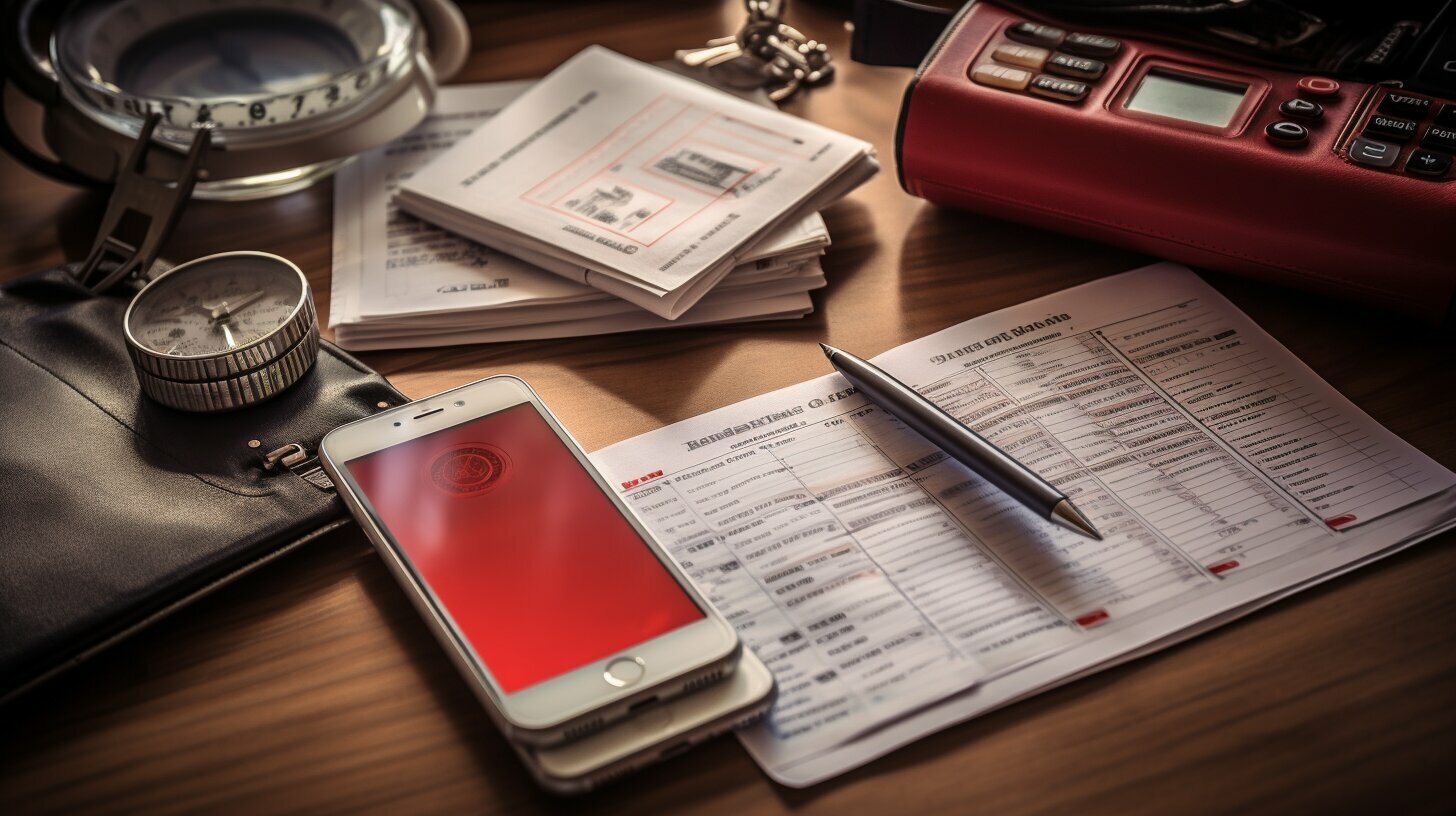
Renewal Application for Concealed Handgun and Firearms License
When it comes to handling a concealed handgun or a concealed firearm, understanding the importance of your handgun permit is crucial. It is equally vital to keep oneself updated about the conditions and process of a firearms permit renewal. This comprises understanding the permit renewal process, knowing the license renewal regulations, and timely submission of the renewal application. The renewal application for a concealed handgun and firearms license typically involves verification of your skills and a review of your initial permit. Paying the renewal fee is an integral part of the process as well.
| State | CCW Permit Validity Period | Renewal Period |
|---|---|---|
| Kentucky | 5 years | Before the expiration of the current permit |
| Florida | 7 years | Within 180 days before the expiration of the current permit |
| Texas | 5 years | Before the expiration of the current permit |
The necessity to recertify skills sometimes surprises permit holders, who often wrongly assume that once they have their permit, they're done for life. However, the crucial requisite of recertify is a demonstration of current capabilities - this process is similar to retaking your driving test to renew your driver's license. Local sheriff offices usually manage the recertification process, making it important to maintain good communication with the sheriff for completing the renewal application correctly.
While the process may feel a bit daunting at first glance, permit holders can undertake steps to make it easier. A good rule of thumb is to start the renewal process 60 days prior to the expiration date of the original permit. This allows ample time for the completion of paperwork, paying of permit renewal fee, setting appointments for recertifying, and any unforeseen circumstances.
If you are still in the dark about this process, consider brushing up your knowledge using our earlier articles like "Concealed Carry: Understanding the Concealed Handgun Permit Process" or "Essential Information on the Concealed Carry Test: What Questions to Expect?". These articles provide a brief guide on the initial application process and what to expect during the test. To further broaden your understanding on permits, refer to our article on "Concealed Carry vs Open Carry: Analysing Gun Laws and Conditions".
Remember, safety guidelines and rules laid down for concealed carry are critical not only for your own safety but also for community safety. Hence, ensure you stay abreast with the renewal system and complete your license renewal application in time, pay the necessary concealed permit renewal fee, and maintain communication with your local sheriff. The end goal of this tedious process is to ensure the right people, with the right skills, maintain their permit to carry concealed firearms and handguns.
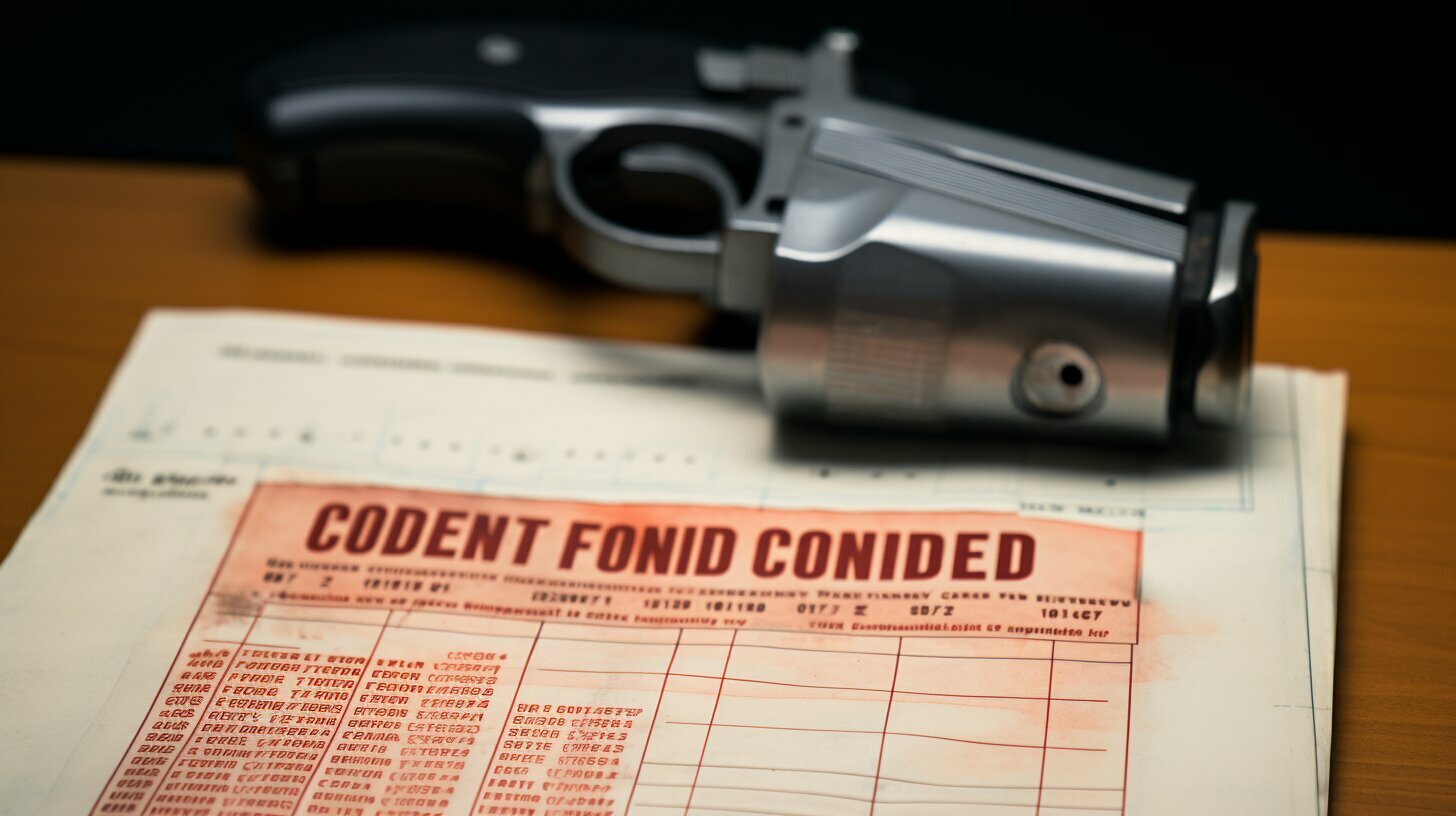
Is It Possible to Get a Concealed Carry Permit Online, and How Long Does It Last?
Acquiring a concealed carry permit in most states requires careful navigation through their respective licensing division, diligently filling out an application, and submitting the necessary information. Lately, the prospect of getting a permit online is becoming an appealing option for many. The increasing demand for handgun permit has paved the way for a streamlined, digital process. But do remember, while you can request and submit your application online, the states' division will need to approve it.
Each state has unique regulations regarding the issuance of a concealed permit. Consequently, the length a permit lasts also varies according to the state. If you are wondering, 'how long does a concealed carry permit last?' it mostly hinges on the issuing state's laws. Long do concealed carry permits last, varies from anywhere from one to five years, again, depending on the state. Proficiency needs continuous practice. So, keeping tabs on your permit's validity is crucial under any circumstances.
Key Points:
- Constitutional carry legislation allows eligible residents to carry concealed firearms without a CCW permit.
- States like Georgia and Louisiana have passed constitutional carry laws.
- Constitutional carry simplifies the process for law-abiding citizens to exercise their right to self-defense.
- While restrictions and regulations may still apply, constitutional carry removes the requirement for permits and training in these states.
| State | Constitutional Carry Status |
|---|---|
| Georgia | Constitutional carry is legal for eligible individuals. |
| Louisiana | Constitutional carry is legal for eligible individuals. |
Among all tactical accessories, the concealed handgun has arguably been the most controversial yet demanded protective measure for legal gun owners. With this rise in demand, access to information on obtaining a concealed firearm permit has become easier than ever. It is essential to review your state's regulations thoroughly before initiating the process of applying for a handgun or firearm permit. While this might sound tedious, it’s crucial to do this to ensure that your permit application is successful and you’re in compliance with all local laws.
In the same vein, learning about the latest trends, updates, and changes about concealed carry permits is necessary. Recognizing the differences between a license and a permit, or a concealed carry versus an open carry, significantly influences your application's outcome. The dynamics of proceeding with the permit application differ by state, and the best source of information is usually the licensing division of your local law enforcement agency.
An essential piece of advice: always make sure you fill out and submit the necessary sections of your application correctly, to avoid unnecessary delays.
The frequency at which you need to renew your permit is something you should constantly be aware of. Thankfully, many states provide online platforms where individuals can submit their renewal applications. The digitized system is set up to respond to the growing need for a more efficient concealed carry permit application process. However, you must still meet all the necessary requirements the state or division has in place for license renewals.
In conclusion, while the process varies from one state to another, getting or renewing a concealed carry permit online is a possibility in many states. Just remember, owning a permit comes with significant responsibilities, which include providing the correct information and promptly renewing your license. With rights come obligations, and maintaining a valid concealed carry permit is one of them.
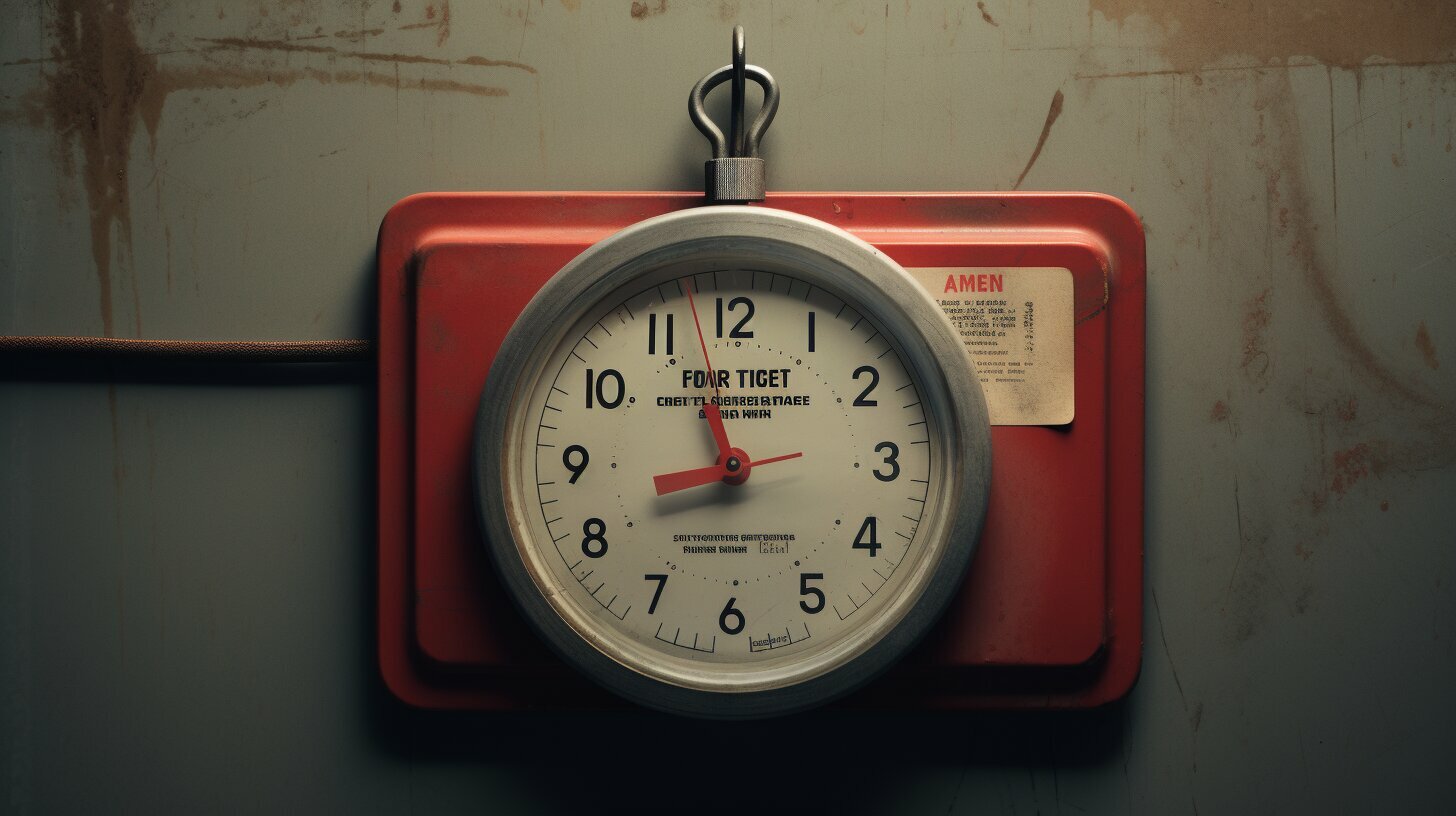
Under 21 Concealed Carry Regulations: Can You Take the Class Early?
As more younger individuals express an interest in self-defense, the conversation around the age criteria for securing a concealed carry permit heats up, particularly for those under 21. For these young firearm enthusiasts, understanding the concealed handgun permit process is crucial. State laws vary greatly, so we'll examine this information in the following sections.
Firstly, let's answer the pressing question: "Under 21 concealed carry regulations: can you take the class early?" Lawfully speaking, the ability to secure a concealed firearm permit hinges on specific state laws. Some states do allow individuals of a certain age threshold—usually 18 and above—to apply for and receive a handgun permit. Other states firmly hold onto the national age of 21 for a concealed carry license. However, eager young gun enthusiasts can often enroll in safety courses early, which is a cornerstone of most CCW permit applications.
One important point to consider, though, is whether the states will recognize your completed safety training when you eventually reach the legal age to file your application. Not all states' law officials would acknowledge an early safety class completion unless it aligns with their specific state regulations.
The key to navigating this complex web of varied state laws is diligent research. Make use of relevant sections on your respective state's law enforcement website for accurate information. Residents can also contact their local police departments for further clarification about their state's age requirements for concealed handgun ownership.
As far as the application goes, most applicants must demonstrate competent knowledge of firearm usage and safety protocols. They must also possess a clean criminal record. Consequently, even though the permit requirements may seem daunting, younger firearms enthusiasts have the opportunity to familiarize themselves early with these procedures, significantly boosting their potential application success rate.
Interestingly enough, many states are now digitizing their application processes. For instance, in some areas, you can apply for and renew your handgun license online, a development that enhances resident convenience.
In summary, the minimum age to secure a concealed firearm permit varies, with some states allowing applications as early as 18 and others as late as 21. Those interested in securing a concealed carry permit early may gain a head start by enrolling in safety classes. Still, they should always communicate with their related state departments to confirm their state's specific regulations. As the debate rages on, what remains clear and undeniable is the vital role of clear information in securing a concealed carry permit successfully.
FAQ
Q: What is the application process for a concealed carry permit?
A: To apply for a concealed carry permit, one must understand the detailed stages of the application process enacted by each state. Most states require applicants to be at least 21 years of age and have completed certain safety training programs. Applicants must also demonstrate a genuine reason to carry a concealed firearm. The state has discretion over permit issuance, and permit requirements vary from state to state.
Q: How long do concealed carry permits last?
A: The duration of concealed carry permits is not standardized and can differ significantly from one state to another. In most states, the permits typically last for five years, after which they must be renewed. However, the renewal process may require the same level of scrutiny and background checks as applied during the initial issuance of the permit.
Q: Can a concealed carry permit be used in all states?
A: If a permit holder moves to a different state, it is essential to find out whether the new state recognizes the concealed pistol permit. Some states may recognize the permit issued by another state, but this is not always the case. Therefore, people who carry concealed weapons need to be familiar with regulations and restrictions across different states.
Q: What topics are covered in the concealed carry test?
A: The concealed carry test evaluates one’s understanding of pertinent laws, safety protocols, and responsible use of firearms. It may cover the legalities associated with concealed carry permits, general rules of firearm safety, correct handling and storage methods, ammunition types, reloading procedures, and problem-solving measures for a malfunctioning firearm.
Q: What factors should influence the decision between concealed carry and open carry?
A: When deciding between concealed and open carry, your safety and the safety of those around you should be a priority. You should consider the regulations in your state or division, adhere to the relevant gun laws and carry laws, and align your actions with the unique conditions of your lifestyle and safety needs. It is also essential to comprehend the conditions under which the concealment of firearms is permitted.